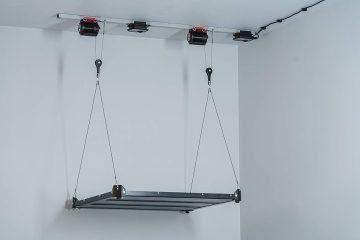5 Key Questions to Ask Before Purchasing Any Piece of Furniture

Buying furniture can be an exciting experience. Whether you’re furnishing a new home, upgrading your current space, or simply replacing an old favorite, selecting the right piece involves more than just picking something that looks good. Furniture is an investment that impacts both your comfort and your home’s aesthetic, so it’s essential to ask the right questions before making a purchase. Here are five key questions every furniture buyer should consider before committing.
1. What Is the Purpose and Placement of This Furniture?
Before diving into style and price, it’s important to clarify the primary purpose of the furniture piece. Will it be used daily, like a sofa or dining table, or will it serve a more decorative or occasional function? Understanding how often the furniture will be used can guide your decisions on durability and material.
Also, think carefully about where you plan to place the item. Measure the space thoroughly to ensure the piece fits comfortably without overcrowding the room. Pay attention to doorways, hallways, and staircases to make sure the furniture can be delivered and placed easily.
Many people overlook the significance of function and space compatibility, leading to furniture that looks great but doesn’t fit well or meet their needs. Asking yourself these questions upfront can prevent costly mistakes.
2. What Materials and Construction Quality Does It Have?
Furniture can be made from a wide range of materials—solid wood, plywood, metal, upholstery, glass, and more. The materials used have a huge impact on durability, maintenance, and overall look. For example, solid hardwood tends to be more durable and can often be refinished, whereas particleboard or MDF may be more affordable but less long-lasting.
When shopping around, it’s wise to check the construction details. Look closely at joints, frames, and support systems. Well-crafted furniture often features dovetail joints, reinforced corners, and sturdy frames that can withstand daily use.
If you’re exploring options from local or online stores, reading through customer reviews can offer valuable insights into the quality of construction. For instance, those browsing Coleman Furniture reviews often find that customers highlight not just the attractive design but also the sturdiness and longevity of the pieces—a helpful sign when assessing overall value.
3. Does the Furniture Fit Your Style and Lifestyle?
Furniture is a major expression of personal style, so it should complement your tastes and the décor of your home. Whether you lean toward modern minimalism, classic traditional, rustic farmhouse, or eclectic bohemian, select pieces that harmonize with your vision.
At the same time, consider your lifestyle. If you have children or pets, you might want to choose furniture with durable, easy-to-clean fabrics or finishes. If you entertain frequently, a larger dining table with comfortable chairs might be a priority.
Remember, trendy pieces might seem exciting but can quickly go out of style. Opt for timeless designs if you want furniture that remains appealing for years.
4. What Is the Total Cost, Including Delivery and Assembly?
Price is often the deciding factor when buying furniture, but it’s crucial to look beyond the sticker price. Consider additional costs like delivery fees, assembly charges, or potential customizations.
Sometimes, a lower upfront price can end up costing more if the furniture requires professional assembly or if the delivery fees are steep. Alternatively, investing a bit more in higher-quality furniture with included delivery and assembly can save you hassle and expense in the long run.
Check if the store or brand offers warranties or guarantees. This can be a good indicator of the manufacturer’s confidence in their product and provide peace of mind if something goes wrong.
5. What Are the Return and Exchange Policies?
Even the most well-researched purchases can occasionally fall short of expectations. Before buying, always familiarize yourself with the store’s return and exchange policies.
Are returns accepted? If so, within what timeframe? Are there restocking fees? What is the procedure for damaged items or incorrect shipments? Clear answers to these questions can save a lot of frustration if you end up needing to return or exchange your furniture.
Stores with transparent and customer-friendly return policies are generally more trustworthy. Sometimes, even small print can have conditions that make returning a piece difficult, so it pays to read carefully.
Wrapping Up
Investing in furniture is more than just a shopping trip—it’s a decision that affects your comfort, home’s atmosphere, and daily life. Taking the time to ask these five key questions can help you choose pieces that suit your space, style, and needs while providing lasting value.
From understanding the purpose and placement of the furniture to confirming material quality, style compatibility, total costs, and return policies, each step brings you closer to a smart, satisfying purchase.
If you’re considering reputable retailers, reading unbiased furniture reviews could be a good starting point to get a sense of customer satisfaction and product quality. This can help you feel confident that your investment will serve you well for years to come.
Happy furniture hunting!











